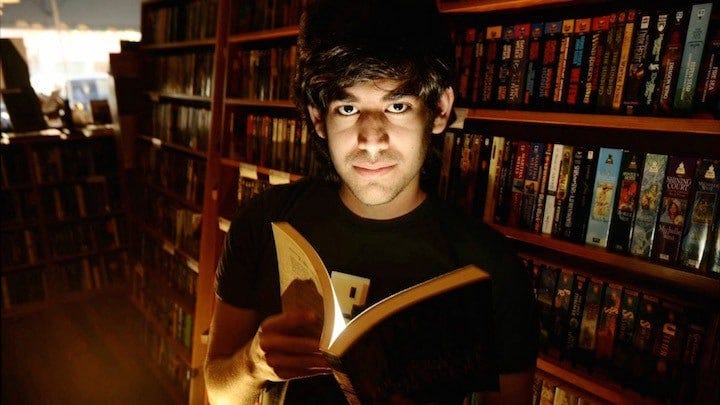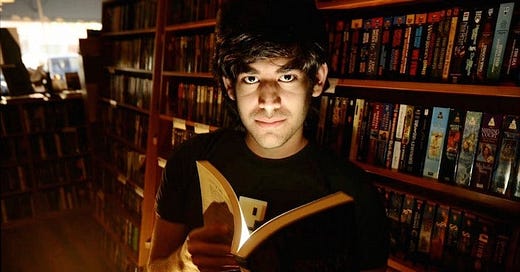‘The Internet’s Own Boy: The Story of Aaron Swartz’ Review: A Moving and Inspiring Biography

This review was originally published during the South by Southwest Film Festival on March 8, 2014. It is being reposted now for its theatrical and VOD release.
Barely a year passed between the death of Aaron Swartz and the premiere of a documentary honoring him. Normally something like this quickly turned-around film, The Internet’s Own Boy, would be all…
Keep reading with a 7-day free trial
Subscribe to Nonfics to keep reading this post and get 7 days of free access to the full post archives.



